Rwanda
Rwandan president Paul Kagame delivered a lecture at the Yale University despite calls by rights group Human Rights Watch (HRW) for protests against his human rights record.
Kagame was invited by the Whitney and Betty MacMillan Center for International and Area Studies at Yale to deliver the 2016 annual Coca-Cola World Fund Lecture on Tuesday, September 20.
Ahead of his lecture, HRW and other activists slammed Yale university for honouring a dictator and someone who according to them presided over a police state.
As
— Kenneth Roth (KenRoth) September 20, 2016Yalehonors mass murderer Kagame, ask about the 30K+ he ordered killed, his Congo slaughter, his police state. https://t.co/HsDL2Um4qi pic.twitter.com/kXY0IipXWm
Huge mistake for #Yale to honor Paul #Kagame. Human Rights Watch, Amnesty have documented his history of human rights abuses. Shame on us.
— Uwayezu j.deDieu (@Uwayezujd) September 19, 2016
Kagame in his address spoke on flaws that international communities had, stating that ‘‘the bias toward cooperation and dialogue in the multilateral system offers an alternative to zero-sum power politics.’‘
He added that efforts by international communities in the resolution of crisis was not just ineffectual but they sometimes worsened problems that they were meant to address in the first place.
President #Kagame: Sometimes efforts by the international community are not only ineffectual, they actually seem to make the problems worse
— Presidency | Rwanda (@UrugwiroVillage) September 20, 2016
Part of his speech read, ‘‘Today we see the steady erosion of values-based solidarity, leading to moral & ideological confusion and new instabilities. Globalisation, technology and experience allow the developing world to pursue same democratic ends in our own ways.
‘’ We increasingly base our legitimacy on results achieved and views of our citizens rather than on external validation,
‘‘Some participants in the international system tend to see this shift as a challenge to their historical leadership They continue to assert the right to define objectives and impose outcomes without consultation with those concerned.’‘
Kagame said he was proud that Rwanda was one of the highest contributors to global peacekeeping missions. He asserted that Rwanda was always ready to fight to defend its stance on international issues irrespective of whatever price there was to pay.
President #Kagame: That’s why Rwanda is happy to do our part, for example as the world’s 5th largest troop contributor to peacekeeping
— Presidency | Rwanda (@UrugwiroVillage) September 20, 2016
The Coca-Cola World Fund at Yale was established in 1992 to support intersecting endeavors among specialists in international relations, international law, and the management of international enterprises and organizations.
Previous lecturers in the series have included Michael Doyle, Gary Hart, Tom Friedman, Nicholas Kristof, Luis Moreno-Ocampo, Sam Nunn, Sadako Ogata, Samantha Power, Mary Robinson, Raghuram Rajan, Eboo Patel, Mo Ibrahim, Marwan Muasher, Raila Odinga, John Githongo, and Deborah Brautigam.
Paul Kagame was born in October 1957 in Rwanda’s Southern Province. His family fled pre-independence ethnic persecution and violence in 1960, crossing into Uganda where Kagame spent thirty years as a refugee.
Determined to resist oppressive regimes, as a young man, Kagame joined current Ugandan President Yoweri Museveni and his group of guerrilla fighters to launch a war to free Uganda from dictatorship. Under the new government, he served as a senior military officer.
In 1990, Paul Kagame returned to Rwanda to lead the Rwandan Patriotic Front’s (RPF) four-year struggle to liberate the country from the autocratic and divisive order established since independence.
Led by Kagame, the Rwanda Patriotic Army defeated the genocidal government in July 1994 and the RPF subsequently set Rwanda on its current course towards reconciliation, nation building and socioeconomic development.
Paul Kagame was appointed Vice-President and Minister for Defense in the Government of National Unity on July 19, 1994, and four years later was elected Chairman of the RPF, a partner in the Government of National Unity.
On 22 April 2000 Paul Kagame took the oath of office as President of the Republic of Rwanda after being elected by the Transitional National Assembly.
President Paul Kagame won the first ever democratic elections held in Rwanda in August 2003 and was re-elected to a second seven-year mandate in August 2010.



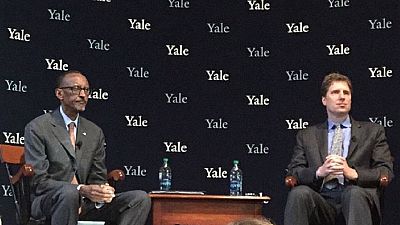

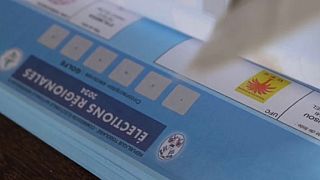
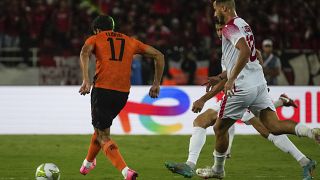
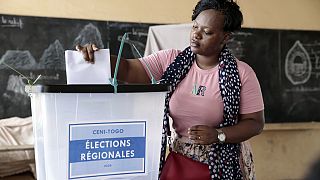
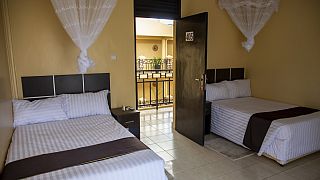
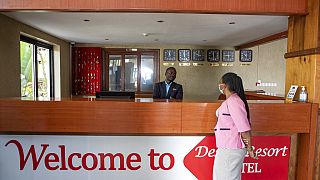
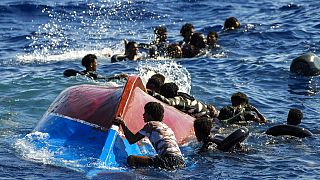
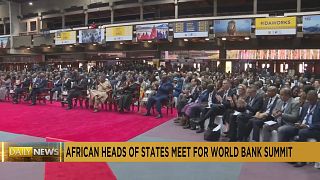
01:20
British prime minister says Rwanda migration policy already working as a deterrent
01:25
UN calls for de-escalation as fighting intensifies for control of North Darfur state capital
Go to video
Burkina Faso Suspends BBC and Voice of America
02:04
2024 New Orleans Jazz and Heritage Festival kicks off
01:13
Arab League deplores US veto denying Palestine full UN membership
Go to video
Botswana rejects controversial UK proposal on asylum-seekers